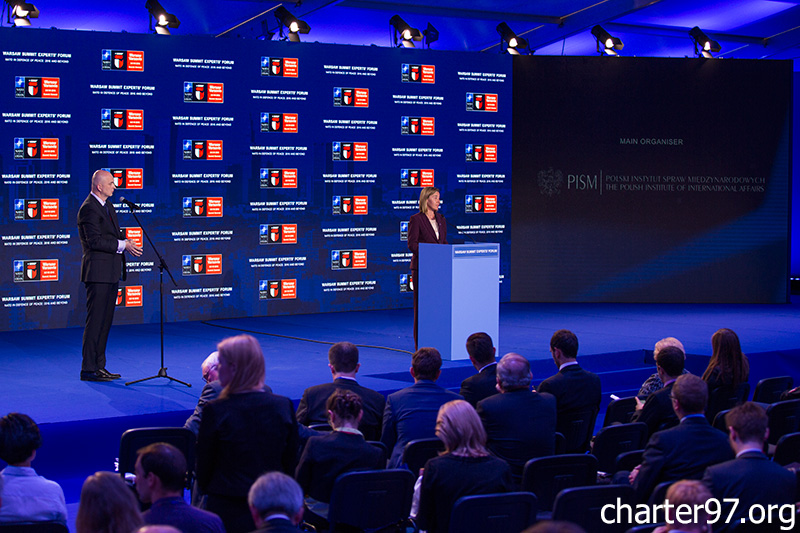Natallia Radzina: For Two Days Warsaw Becomes Centre Of World Affairs
- 9.07.2016, 12:54
- 3,668
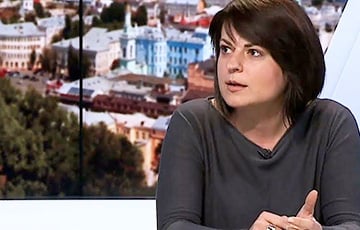
NATO summit in Warsaw has become the largest in the history of the Alliance.
July 8-9 the summit of NATO countries leaders was held at the National Stadium in Warsaw.
The editor-in-chief of charter97.org Natallia Radzina is there and told the website about the main topic of the summit and its meaning for the world politics and Belarus.
– What is the general impression about the scale of NATO summit in Warsaw?
– It is really the biggest-ever summit of NATO. Delegations from 65 countries have arrived to Warsaw, including 18 presidents, 21 prime ministers, 60 foreign affairs ministers and defence ministers.
Unprecedented security measures have been taken in connection with the event. The summit is held at the National Stadium in Warsaw, the perimeter around is cordoned off by policemen and military. Poland is doing everything to make participants of the summit secure.
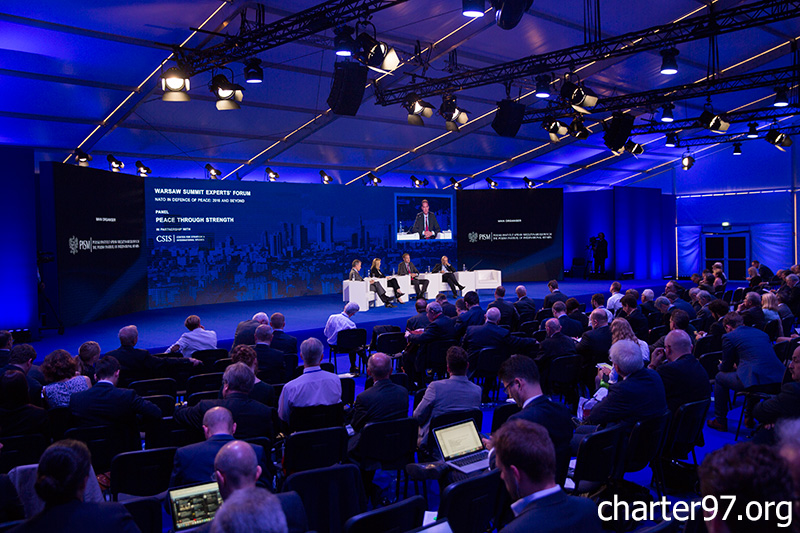
– What issues are discussed at the summit?
– As for the agenda, the main topic discussed here is deployment of NATO battalions in Lithuania, Latvia, Estonia and Poland. This topic is also actively discussed on the sidelines of the summit.
The declaration on cyber security is also to be adopted at the summit. Cyberspace is to be viewed as one of the spaces of modern warfare: alongside with land, water and air space. It means that NATO clearly understands what threat is presented by the Russian propaganda and international terrorism.
The package of NATO assistance for Ukraine, Georgia and Moldova is to be passed as well, and support to the international coalition carrying out operations against the ISIS is to be given.
In the framework of NATO summit the Forum of NATO experts “NATO in Defence of Peace” is held as well. This forum was welcomed by Poland’s President Andrzej Duda, Foreign Affairs Minister of Poland Witold Waszczykowski, Secretary General of NATO Secretary-General Jens Stoltenberg. Among the participants of the Forum also are General Pert Pavel, Chairman of the NATO Military Committee, Raimonds Vējonis, President of Latvia, Petro Poroshenko, Ukrainian President (who was expected to make a statement), Kolinda Grabar-Kitarović, President of Croatia, Milo Djukanović, Prime Minister of Montenegro, Alexander Vershbow, NATO Deputy Secretary General.
Leaders and experts of major analysis centers and think tanks from around the world, including Ian Brzezinski (the Atlantic Council’s Brent Scowcroft Center on International Security), Edward Lucas (Centre for European Policy Analysis and a senior editor at The Economist), Przemysław Żurawski vel Grajewski, advisor to the Minister of Foreign Affairs of Poland, and other world-renowned experts.
The key question on the agenda is Russia’s aggression against Ukraine and the threat to NATO countries, particularly the Baltic States and Poland, from Russia today.
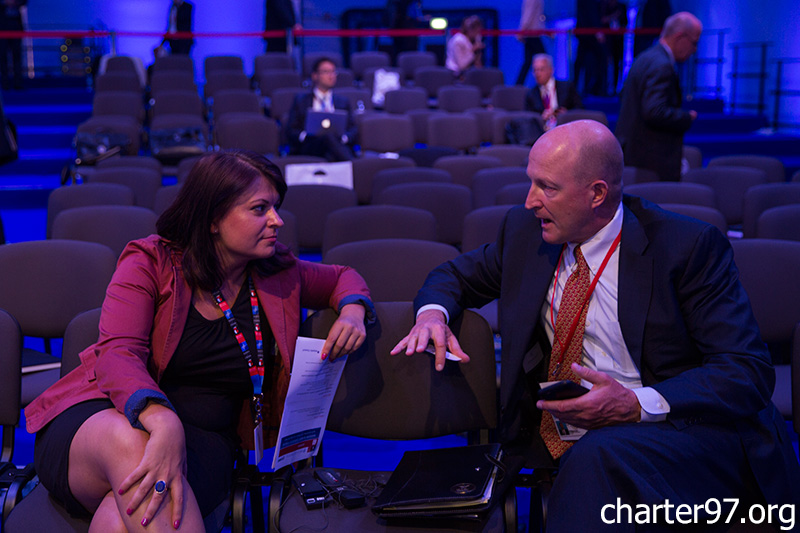
– Was the topic of Belarus addressed at the summit?
– Unfortunately (or fortunately), the issue of Belarus is not touched at the summit, however, this issue is actively discussed by experts on the sidelines. I talked to many of them, and I can say that no one believes that Lukashenka’s regime could guarantee a neutral status of Belarus in the possible conflict of Russia and NATO.
Everyone understands that there is a dictatorship in Belarus, and one could not rely on assurances of the dictator that he would not deploy a Russian military base on his territory, or won’t allow Russian troops attack Ukraine, the Baltic States or Poland through his territory.
One could say that the military understand this threat especially well: they realize it better than officials, who are trying to play the so-called “Realpolitik” and “dialogue” with Lukashenka’s regime. But even adherents of the so-called “dialogue” agree that the situation is extremely instable exactly because the undemocratic nature of Lukashenka’s regime.
It is another matter that in view of the challenging situation in Ukraine, the refugee crisis and Britain’s intention to leave the EU, European officials have no wish or energy to become focused on Belarus and become actively involved with its affairs.
However, realization of the threat from the dictatorial Belarus today is reassuring and gives chances for changing the situation in the future.
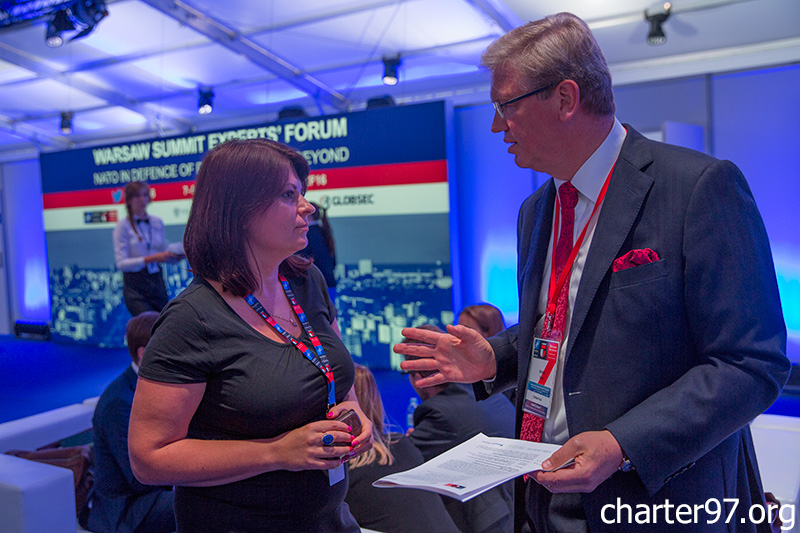
– That is, the summit could influence the West policy towards Belarus?
– Undoubtedly, it could be said that the summit is to influence policies of the West towards Russia seriously. But as long as Lukashenka is the most faithful ally of the Kremlin today, and the Belarusian leadership continues the same close coordination with Russia in the military and political sphere, it is to have an impact on Lukashenka as well.
– What concrete measures for reinforcing the Eastern front of NATO are proposed, in addition to deployment of four battalions in the Baltic States and Poland?
– Only deploying of these battalions is discussed so far.
But some experts say that the summit is to be the start to the cold war between the West and Russia. In this situation I think that Lukashenka’s regime is to face a serious choice. We know that Lukashenka has played himself in a corner, and driven himself in the situation when he is absolutely dependent on Putin, politically and financially.
That is why I do not think that some changes are to take place. There is only one way out here: to change the situation in Belarus. Democratic changes are necessary, opposition should come into power. Then, after a U-turn in the country’s development path, some security in the region could be expected.
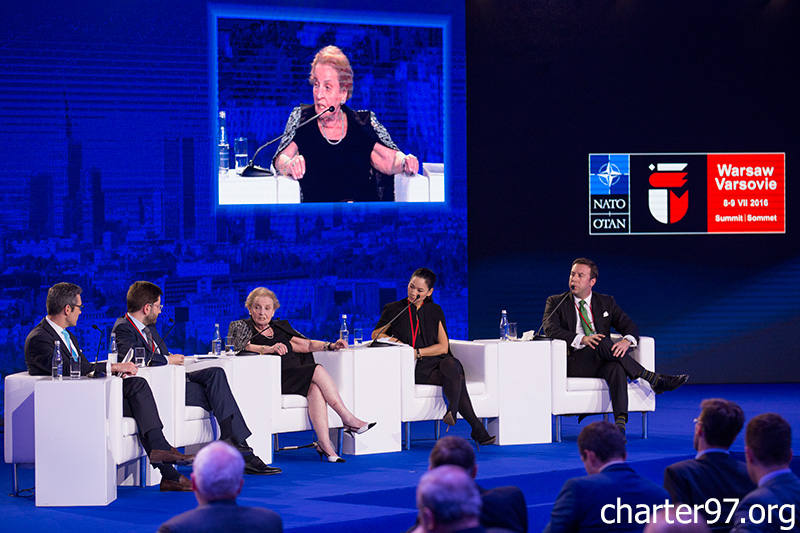
Military experts understand perfectly well, and know that for the last years Russian military have been serving on the territory of Belarus. No one believes Lukashenka’s assurances that he would not place a Russian military base in Belarus. Everyone understands perfectly well that if Putin orders Lukashenka, he would have to obey.
One of military experts said on condition of anonymity that there is already a Russian military base in Belarus, in Stankava near Minsk. It is exactly a military base, and not a radar station like the ones near Vileika or Hantsavichy.
Among other military threats from the dictatorial Belarus named by experts are military exercises held in Belarus on a regular basis.
And they have become more frequent recently: military exercises of Russian paratroopers are to be held in Brest soon. While military drills with Russia were held once a year previously, now they are held almost once a month. This or that branch of arms is participating in these exercises all the time. It is highly alarming.
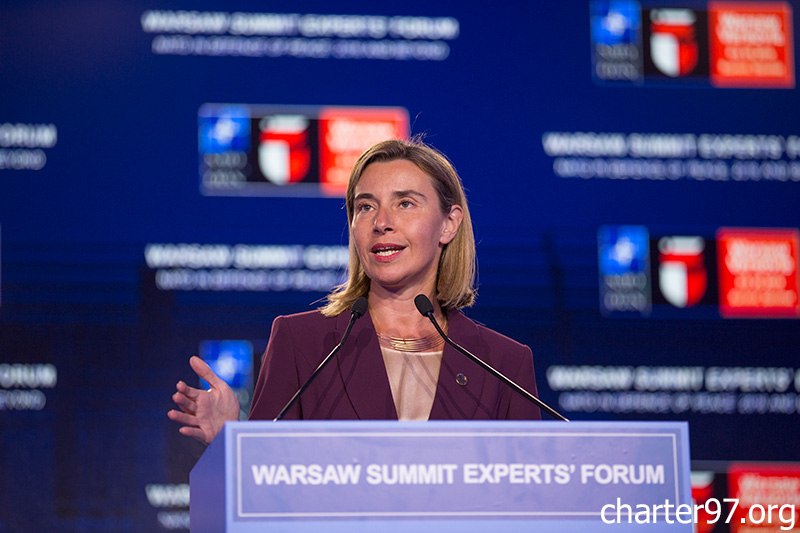
Military experts also note that Russia starts to deploy its troops at the border with Belarus and Ukraine. This stationing of troops near the Belarusian border causes concern, as at any moment, in just a few hours, these troops could be at the border with Ukraine. And no one believes that Lukashenka could hinder that in any way.
